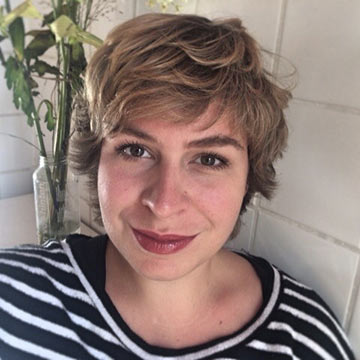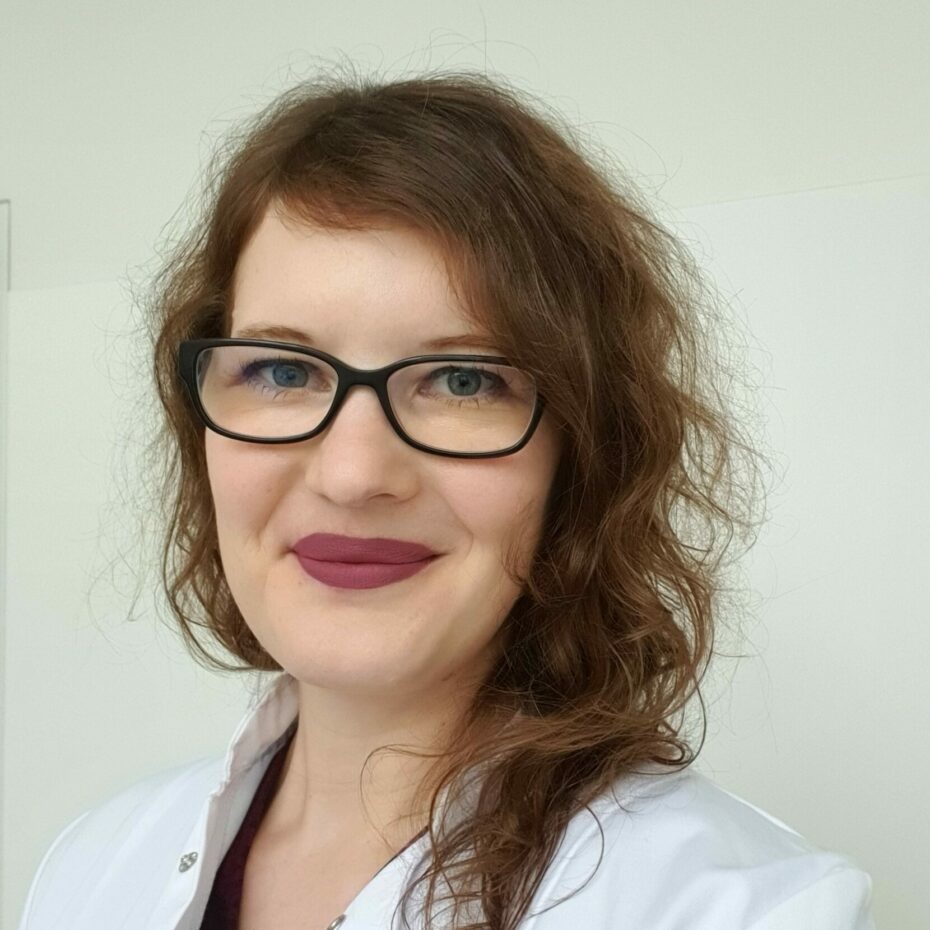Characterization of the immune microenvironment in gastrointestinal tumors using single-cell techniques
Student

Principle Investigator
Principle Investigator

Scientific interest within the context of the graduate college:
Our lab studies the role of immune cells and inflammatory processes in the liver. Infiltration and activation of immune cells play an important role during the development of acute and chronic liver diseases, but the exact molecular and cellular mechanisms leading to the development of liver inflammation have not been fully elucidated until now. We are exploring the inflammatory processes during acute liver failure, non-alcoholic fatty liver disease and steatohepatitis (NASH), liver cirrhosis and liver cancer in order to develop new diagnostic and therapeutic strategies. Furthermore, a better understanding of how both pro- and anti-inflammatory pathways can disrupt the homeostatic processes of a healthy liver is critical for the prevention of liver diseases in the first place.
During homeostasis, the liver plays an important role in adaptation to environmental influences as it is constantly exposed to antigens from the gastrointestinal system, and plays a critical role in maintaining a balance between tolerance to harmless antigens (eg. food proteins or commensal bacteria) and control of pathogens.1 When this balance is disrupted (termed maladaptation) the resulting immune-mediated changes can lead to chronic liver diseases and ultimately cancer.
Project description:
We are especially interested in characterizing the microenvironment of gastrointestinal tumors because these tumors usually develop under chronic inflammatory conditions but then often switch to an immunosuppressive environment.2 This makes them insusceptible to many therapeutic strategies including immunotherapies, which are emerging as new treatment strategies for many types of cancer.3,4 In order to better understand how this switch happens and how the immune-microenvironment in the tumor can be influenced by the surrounding tissue and vice versa, this project aims at investigating the immune phenotype of gastrointestinal tumors. Tumor samples from patients with gastrointestinal tumors (eg. hepatocellular carcinoma, neuroendocrine tumors), as well as chronic liver diseases (eg. NASH, NAFLD), will be analyzed using high throughput single-cell technologies, including single-cell RNA-sequencing, spectral flow cytometry, and multiplex immunohistochemistry. All techniques are already set up in our lab5,6 and will be used to analyze samples already available in a biobank in our department as well as prospectively acquired tissue samples obtained during surgery (resections, explants). Characterization of the peri-/intratumoral immune cell populations and correlation with clinical data (underlying etiology, medical history, therapy response, survival time etc.) will contribute to our understanding of the immune microenvironment in gastrointestinal tumors and how this influences disease outcome. These data will be critical to developing novel strategies to prevent chronic inflammatory liver diseases and tumor formation as well as guide the development of personalized therapeutic strategies and future clinical trials.
References
- Kubes P, Jenne C. Immune Responses in the Liver. Annu Rev Immunol. 2018; 36: 247-277. doi: 10.1146/annurev-immunol-051116-052415.
- Rohr-Udilova N, Klinglmüller F, Schulte-Hermann R, […], Jensen-Jarolim E, Eferl R, Trauner M. Deviations of the immune cell landscape between healthy liver and hepatocellular carcinoma. Sci Rep. 2018; 8:6220. doi: 10.1038/s41598-018-24437-5.
- Zhu AX, Finn RS, Edeline J, […], Siegel AB, Cheng AL, Kudo M, KEYNOTE-224 investigators. Pembrolizumab in patients with advanced hepatocellular carcinoma previously treated with sorafenib (KEYNOTE-224): a non-randomised, open-label phase 2 trial. Lancet Oncol. 2018; 19: 940-952. doi: 10.1016/S1470-2045(18)30351-6.
- Brahmer JR, Tykodi SS, Chow LQM, […], Pardoll DM, Gupta A, Wigginton JM. Safety and activity of anti-PD-L1 antibody in patients with advanced cancer. N Engl J Med. 2012; 366:2455-2465., doi: 10.1056/NEJMoa1200694.
- Ramachandran P, Dobie R, Wilson-Kanamori JR, […], Marioni JC, Teichmann SA, Henderson NC. Resolving the fibrotic niche of human liver cirrhosis at single-cell level. Nature. 2019; 575:512-518. doi: 10.1038/s41586-019-1631-3.
- Guillot A, Kohlhepp MS, Bruneau A, Heymann F, Tacke F. Deciphering the Immune Microenvironment on A Single Archival Formalin-Fixed Paraffin-Embedded Tissue Section by An Immediately Implementable Multiplex Fluorescence Immunostaining Protocol. Cancers (Basel). 2020; 12:2449. doi: 10.3390/cancers12092449..
